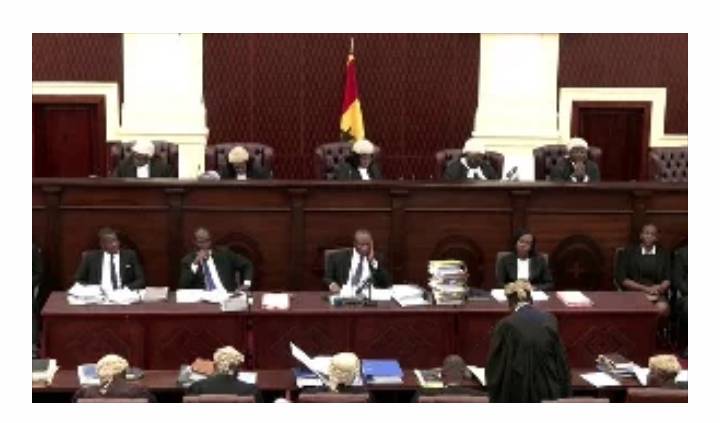The Supreme Court of Ghana has announced December 18, 2024, as the judgment date for two legal cases filed against the Speaker of Parliament, Alban Bagbin, over the passage of the Promotion of Human Sexual Rights and Family Values Bill, commonly known as the Anti-Gay Bill.
During proceedings on Tuesday, November 19, the plaintiffs, Dr. Amanda Odoi of the University of Cape Coast and Richard Dela Sky, along with the Speaker of Parliament, presented their legal arguments before a seven-member Supreme Court panel chaired by Justice Lovelace Johnson. Both sides relied on written submissions to support their cases.
Key Legal Issues
The plaintiffs argue that Parliament failed to include a financial impact assessment in the bill's passage, a requirement for all legislative processes. Following this, the court instructed their lawyers to amend their statements to reflect this point by November 22, 2024. This procedural requirement could play a crucial role in the court's final determination of the matter.
Background of the Bill
The Anti-Gay Bill, passed by Parliament on February 28, 2024, aims to criminalize Lesbian, Gay, Bisexual, and Transgender (LGBT) activities in Ghana. It also targets the promotion, advocacy, and funding of LGBT causes. If signed into law, the bill will impose prison sentences ranging from six months to three years for offenders, while sponsors and promoters could face up to five years of imprisonment.
Despite its passage in Parliament, the bill awaits presidential assent to become law. Under Ghanaian law, the president has seven days to approve or reject the bill. Should President Nana Addo Dankwa Akufo-Addo refuse to sign, Parliament has the power to override his decision with a two-thirds majority vote.
Tensions Among Ghana's Leadership
The Anti-Gay Bill has sparked tensions between the executive, legislative, and judicial branches of government. Speaker Bagbin has accused the executive and judiciary of undermining parliamentary authority by advising against transmitting the bill to the president while the Supreme Court cases are ongoing.
Bagbin recently directed the Clerk of Parliament to forward the bill to the president, asserting Parliament's autonomy in legislative matters. The move has been met with resistance from the Office of the President, which maintains that no action should be taken until the legal challenges are resolved.
Implications of the Supreme Court Ruling
The court’s decision on December 18 will be pivotal in determining the future of the Anti-Gay Bill and could set a precedent for legislative procedures in Ghana. Advocates and critics of the bill alike are closely watching the case, as it reflects broader societal debates about human rights and cultural values.
Source: Adapted from GhanaWeb.




No comments yet
Be the first to share your thoughts!